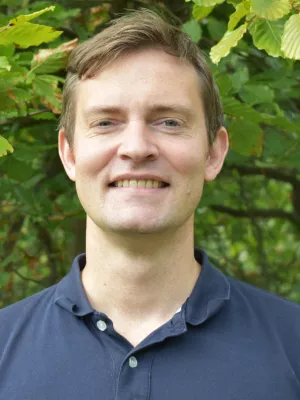
Yann Clough
Professor

Communities of oil palm flower-visiting insects : Investigating the covariation of Elaeidobius kamerunicus and other dominant species
Author
Summary, in English
Insects visit flowers not only to forage for nectar or pollen but also to search for hosts or prey, and to look for suitable habitats for breeding sites. In oil palm flowers, it has been documented that not all flower-visiting insects are pollinators, but some insects are recognized as predators, parasitoids or saprophages, which may affect the abundance and persistence of the weevil pollinating oil palm, Elaeidobius kamerunicus. We studied the community of oil palm flower-visiting insects and investigated the covariation between the abundance E. kamerunicus and that of other dominant species. Ecological research was conducted in oil palm plantations with different tree ages in Central Borneo. Our results found that tree age and flower type of oil palm did not influence the abundance and species richness of flower-visiting insects, but significantly affected their species composition. There was a significant positive relationship between the abundance of E. kamerunicus and the fly Scaptodrosophila sp, indicating that these species covariate in oil palm flowers. These findings suggest that understanding the covariation between E. kamerunicus and Scaptodrosophila sp may help develop the conservation strategies for E. kamerunicus to support the sustainable production of oil palm.
Department/s
- Centre for Environmental and Climate Science (CEC)
- BECC: Biodiversity and Ecosystem services in a Changing Climate
Publishing year
2019
Language
English
Publication/Series
PeerJ
Volume
2019
Issue
8
Document type
Journal article
Publisher
PeerJ
Topic
- Environmental Sciences related to Agriculture and Land-use
- Ecology
Keywords
- Central borneo
- Oil palm flower
- Scaptodrosophila
- Sticky trap
Status
Published
ISBN/ISSN/Other
- ISSN: 2167-8359